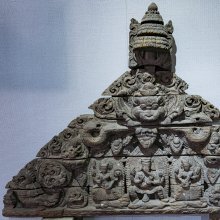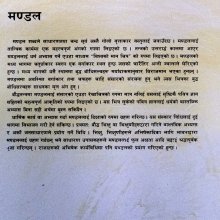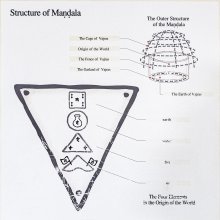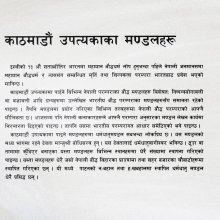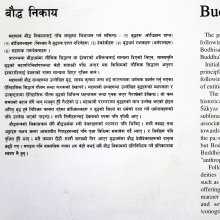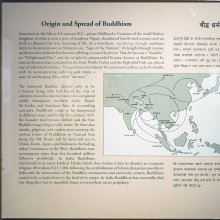Hun, Hūn, Huṉ: 6 definitions
Introduction:
Hun means something in Hinduism, Sanskrit, the history of ancient India, biology, Tamil. If you want to know the exact meaning, history, etymology or English translation of this term then check out the descriptions on this page. Add your comment or reference to a book if you want to contribute to this summary article.
Images (photo gallery)
(+1 more images available)
India history and geography
Source: Cologne Digital Sanskrit Dictionaries: Indian Epigraphical GlossaryHūn.—(IE 8-8), same as varāha; name of a gold coin of about 50 grains, called pagoda or ‘star pagoda’ in English. Note: hūn is defined in the “Indian epigraphical glossary” as it can be found on ancient inscriptions commonly written in Sanskrit, Prakrit or Dravidian languages.
--- OR ---
Hūn.—same as hon or varāha (q. v.), etc. Note: hūn is defined in the “Indian epigraphical glossary” as it can be found on ancient inscriptions commonly written in Sanskrit, Prakrit or Dravidian languages.

The history of India traces the identification of countries, villages, towns and other regions of India, as well as mythology, zoology, royal dynasties, rulers, tribes, local festivities and traditions and regional languages. Ancient India enjoyed religious freedom and encourages the path of Dharma, a concept common to Buddhism, Hinduism, and Jainism.
Biology (plants and animals)
Source: Google Books: CRC World Dictionary (Regional names)Hun in Mexico is the name of a plant defined with Zea mays in various botanical sources. This page contains potential references in Ayurveda, modern medicine, and other folk traditions or local practices It has the synonym Zea hirta Bonaf. (among others).
Example references for further research on medicinal uses or toxicity (see latin names for full list):
· Landwirthschaftliche Flora (1866)
· The Illustrated Dictionary of Gardening … (1887)
· FBI (1897)
· Proceedings of the American Academy of Arts and Sciences (1891)
· New York State Agric. Expt. Sta. Rept. (1884)
· Prodromus stirpium in horto ad Chapel Allerton vigentium. (1796)
If you are looking for specific details regarding Hun, for example chemical composition, pregnancy safety, extract dosage, health benefits, diet and recipes, side effects, have a look at these references.

This sections includes definitions from the five kingdoms of living things: Animals, Plants, Fungi, Protists and Monera. It will include both the official binomial nomenclature (scientific names usually in Latin) as well as regional spellings and variants.
Languages of India and abroad
Sanskrit dictionary
Source: Cologne Digital Sanskrit Dictionaries: Monier-Williams Sanskrit-English DictionaryHun (हुन्):—(only in 3. sg. [Potential] hunet) = √1. hu, to sacrifice, [Pañcarātra; Hemādri’s Caturvarga-cintāmaṇi]
[Sanskrit to German]
Sanskrit, also spelled संस्कृतम् (saṃskṛtam), is an ancient language of India commonly seen as the grandmother of the Indo-European language family (even English!). Closely allied with Prakrit and Pali, Sanskrit is more exhaustive in both grammar and terms and has the most extensive collection of literature in the world, greatly surpassing its sister-languages Greek and Latin.
Kannada-English dictionary
Source: Alar: Kannada-English corpusHuṇ (ಹುಣ್):—[noun] = ಹುಣ್ಣು [hunnu].
Kannada is a Dravidian language (as opposed to the Indo-European language family) mainly spoken in the southwestern region of India.
Tamil dictionary
Source: DDSA: University of Madras: Tamil LexiconHuṉ (ஹுன்) noun Pagoda, a gold coin of the value of Rs. 3½; வராகன். [varagan.] (C. G.)
Tamil is an ancient language of India from the Dravidian family spoken by roughly 250 million people mainly in southern India and Sri Lanka.
See also (Relevant definitions)
Starts with (+180): Humca, Humdaguttige, Humdahalata, Humdasamsthana, Humdavali, Humdavani, Humdavanna, Humdekara, Humdigadige, Humdipatra, Humdukoli, Humguttu, Humja, Humji, Humjike, Humju, Humkara, Humkaramgey, Humkarane, Humkarisu.
Ends with (+81): Ahun, Ahun erihun, Ai tan chun, Akunkun ahun, Alofohun, Amafughun, Ataitun, Azkhun, Bahun, Bhun, Biljhunjhun, Cachun, Caitun, Chamhun, Chhun, Chiang chun, Chou chun, Chow Khun, Chun, Cockshun.
Full-text: Huna, Cana, Yu hun-tun, Rou hun-tun cao, Yaa hua maeng hun, Sitahuna, Shvetahuna, Hum, Hon, Bhuka, Prahavaniya, Hana, Varaha, Harshavardhana, Pagoda, Pon, Pagod, Unam, Visha, Tirtha.
Relevant text
Search found 29 books and stories containing Hun, Hūn, Huṇ, Huṉ; (plurals include: Huns, Hūns, Huṇs, Huṉs). You can also click to the full overview containing English textual excerpts. Below are direct links for the most relevant articles:
The Vishnu Purana (by Horace Hayman Wilson)
Chapter XI - Race of Yadu, An account of Arjuna, the lord of a thousand arms < [Book IV]
Chapter III - Description of Bharata-varsha < [Book II]
Buddhist records of the Western world (Xuanzang) (by Samuel Beal)
Chapter 23 - Country of Kho-to-lo (Khotl) < [Book I - Thirty-Four Countries]
Chapter 5 - Country of Che-shi (Chaj or Tashkand) < [Book I - Thirty-Four Countries]
Chapter 17 - Country of Ta-mi (Termed) < [Book I - Thirty-Four Countries]
Yoga Vasistha [English], Volume 1-4 (by Vihari-Lala Mitra)
Chapter CXII - Flight of the foreign foes < [Book VII - Nirvana prakarana part 2 (nirvana prakarana)]
Chapter xxxvi < [Book III - Utpatti khanda (utpatti khanda)]
Lord Jhulelal: An Analytical Study (by Thakkar Harish Gopalji)
Part 20 - Lohana People < [Chapter 2 - Literature Review]
Hitler’s Table lamp < [April – June, 1990]
Taxila - A Study Centre and University < [April – June, 1997]
Decline of Buddhism in India < [July 1970]
Sahitya-kaumudi by Baladeva Vidyabhushana (by Gaurapada Dāsa)
Text 8.17 < [Chapter 8 - Literary Qualities]
